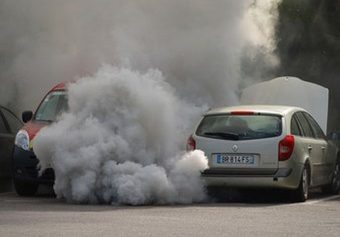London Mayor Sadiq Khan has confirmed the capital’s planned Ultra-Low Emission Zone (ULEZ) will enter into force more than a year earlier than originally planned, on April 8 2019.

The ULEZ, which will operate 24 hours a day, will impose charges on all but the cleanest vehicles that come into the city centre as part of the Mayor’s plan to bring air quality in London back within legal limits.
Two charging levels will be introduced: £12.50 for cars, vans and motorbikes and £100 per day for lorries, buses and coaches.
It will be levied alongside the existing Congestion Charge, currently set at £11.50 per day, but replace the T-Charge which was introduced last month.
The Mayor’s Office confirmed late last week that it expects the new charge to impact around 60,000 vehicles every day, marking a sharp increase on the 6,500 vehicles a day thought to be covered by the T-Charge. The policy’s strict emissions criteria means most cars that are more than four years old will have to pay the charges, giving London the tightest emissions standards of any city in the world.
“London’s lethal air is one of the biggest health challenges of this generation,” Khan said in a statement. “We can’t continue breathing in air so toxic it harms children’s lung development and causes chronic illness and premature death.
“So I am pleased to confirm that from 8th April 2019 – 17 months earlier than planned – stricter standards for diesel vehicles will apply 24/7 across central London. This builds on the success of the T-Charge and is part of my comprehensive plan to clean London’s air.”
All cash raised from charges will go to Transport for London and will be earmarked for improving city’s fleet of buses and tube, cycle, and rail connectivity.
The decision to introduce the ULEZ earlier than the original 2020 start date will cut road transport emissions by an extra 20 per cent in 2019, the Mayor’s Office said.
According to official estimates, it will mean more than 100,000 people will no longer live in areas that exceed legal limits for NO2 limits, and 42 schools across the capital will no longer suffer illegal levels of air pollution.
Chief executive of the British Lung Foundation Dr Penny Woods welcomed the decision to introduce the ULEZ early, claiming it could “dramatically improve people’s quality of life”.
However, she warned “further and faster” action is still needed from the national government. “A targeted scrappage scheme is needed to help people move to cleaner vehicles,” she said. “This must prioritise people on low incomes and those with health conditions who find it hardest to get around.”
Source: businessgreen.com

